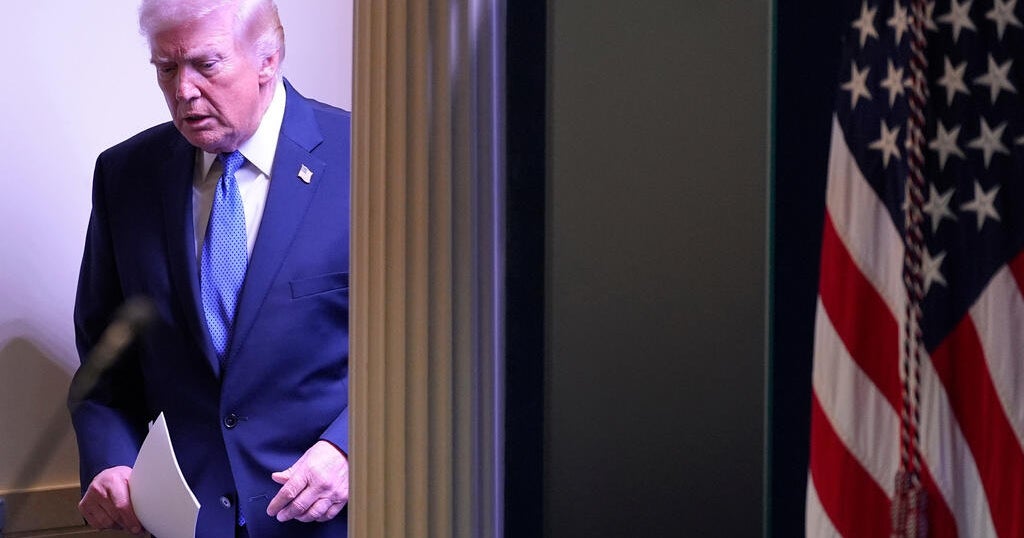How the Medicaid work requirement could backfire
For most working-age Americans, the health care system is largely tied to employers, with one big exception: Medicaid, the government insurance program for the poor, elderly and disabled.
That's likely to change, given the Trump administration's announcement on Thursday that it would allow states to impose work requirements for Medicaid recipients. In essence, if they can't prove they have a job, they'll lose their health insurance. The administration argues this will allow states to "achieve positive results for the people they serve."
At stake is health care coverage for 74 million people, although the vast majority of the adults who would be subject to the work requirement are already employed. So who would feel the burn of the new policy? Most likely, the millions of those who say they're too sick to search for a job yet haven't gone through the lengthy process of qualifying for a disability determination.
For those Americans, meeting the work requirement would be difficult -- and the loss of Medicaid devastating, critics say.
That raises a host of questions, including whether the requirement would ultimately improve employment rates among Medicaid recipients, or, as critics charge, would result in booting poor and sick Americans from its rolls without helping them find work.
"Taking away struggling workers' health insurance isn't just cruel; it's wildly counterproductive," said Rebecca Vallas, managing director of the Poverty to Prosperity Program at the Center for American Progress, a progressive-leaning think tank. "Study after study shows that having health insurance is associated not only with better health but also with increased work capacity, which translates into higher wages and earnings."
Take Michigan, which expanded Medicaid enrollment under the Affordable Care Act. More than half of recipients who were out of work said they were better able to search for a job after gaining Medicaid coverage, according to University of Michigan researchers.
"Having health insurance, and being able to take care of one's health as a result, has a large positive impact on a person's ability to do a better job at work or seek employment," researcher Renuka Tipirneni said in a statement about her research last year.
It may seem like a no-brainer that having access to medical services improves health, which in turn eases the path to employment. The Trump administration argues that allowing states to impose work requirements will make a "a positive and lasting difference in the health and wellness of our beneficiaries."
Work requirements in other government aid programs haven't helped move the needle on employment, researchers have found. The welfare program known as the Temporary Assistance for Needy Families introduced a work requirement in the 1990s, yet the employment increases were "modest" and later declined, according to the Urban Institute.
More tellingly, welfare recipients with "major employment barriers" such as health conditions didn't find work as a result of the requirement, the Urban Institute noted in a research report.
"Many others were unable to meet TANF's stringent work requirements at all, due to employment barriers such as caregiving obligations, health problems, low levels of education and criminal records," Vallas noted. "As a result, they were left without assistance even though they hadn't found work."
Advocates for the poor and working-class Americans say Medicaid's work requirement might harm those who are in most need of help. While the Trump administration said the work requirement would affect "able-bodied" adults, there are grey areas, such as adults who are sick but haven't received a disability designation.
Then there's the red-tape issue, or the hassle recipients may face in proving to government officials that they are employed. The paperwork headache might cause some Medicaid recipients who are employed to skip the entire process, knocking them off the rolls.
Those bureaucratic barriers for Medicaid are an "unnecessary burden," according to Georgetown University's Health Policy Institute. It noted that Kentucky has estimated the work requirement will cause 95,000 of its residents to lose Medicaid coverage.
The new mandate creates "one more inappropriate hoop for them to jump through," said Sam Brooke, the deputy legal director for the Southern Poverty Law Center, in a statement. The SPLC said it plans to file a legal challenge against the rule.
"Work requirements are premised on a set of myths about poverty," Vallas said. "First, that 'the poor' are some stagnant group of people who 'just don't want to work.' Second, that anyone who wants a well-paying job can snap her fingers to make one appear. And third, that having a job is all it takes to not be poor."



